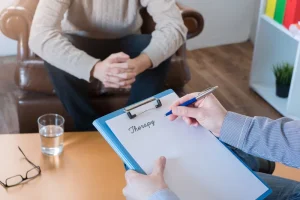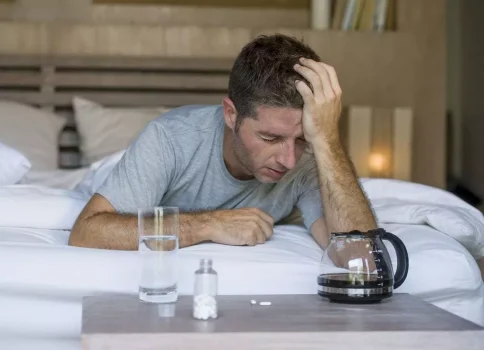
Some recovery groups promote emotional openness by playing feelings charades. To encourage helpful discussions, some recovery groups toss around question balls. You, nor your loved one, are under any obligation to commit to a Legacy Healing Center treatment program when calling https://ecosoberhouse.com/ the helpline. Much like music, artistic activities can help people relax and focus on something soothing, which aids in recovery and healing. Afterward, participants may be invited to share any surprising or revealing thoughts they had, if they feel comfortable doing so.
- In addition to enhancing a sense of community, this activity provides an avenue for discussing harmful stereotypes and stigma.
- Process groups are focused on self-exploration and giving/receiving feedback.
- After a major blow-up (and once everyone is calm), it can be beneficial for the group to process it with the person who escalated.
- This statistic highlights the persistent nature of addiction as a chronic condition.
- Recovering Champions offers 100% confidential substance abuse assessment and treatment placement tailored to your individual needs.
Negative Thinking
- Triggers are people, places, feelings, or other things that make you want to abuse drugs.
- You’ll do yourself a service because you can improve your communication skills, gain self-awareness, reduce loneliness, and get honest feedback.
- Together, group members can brainstorm ways to reduce cravings and promote healthy behaviors such as good diets and sufficient sleep schedules.
- However, taking a moment to stop and focus on the present can be extremely beneficial.
- (Most do.) Clients selected as “most likely” (in either category) have the opportunity to process with other group members and staff.
- Still, with mindfulness, group members can discuss things that cannot be changed and learn to accept their situation.
In this post, I highlight 50 Substance Abuse Group Therapy Activities for Recovery that you can use with your clients. Substance abuse group therapy is a great way to improve communication skills overall, which is helpful in successfully managing relationships and resolving conflicts. With group activities, members can learn to express emotions healthily and develop more effective coping strategies for managing triggers and stress. While substance abuse group therapy sessions sometimes have a certain stigma around them, they work to normalize substance abuse struggles and help individuals feel less alone. Substance abuse triggers are an essential aspect of addiction, as they can determine the success of recovery. Substance abuse triggers are what encourage individuals to drink alcohol or use drugs again and can significantly increase relapse risk.
- Letting go of hurtful moments and hearing about other people’s experiences can help many gain greater self-awareness.
- Professional associations, such as the American Group Psychotherapy Association, have developed best practice guidelines based on scientific data and clinical research.
- Setting short- and long-term goals gives people in recovery something to work for, but they can sometimes struggle with determining what those goals should look like.
What is Extended Care?
- Substance abuse group therapy is a great way to improve communication skills overall, which is helpful in successfully managing relationships and resolving conflicts.
- Implementing positive and healthy habits can create a better life and day-to-day functioning, which supports sobriety and recovery.
- In a substance abuse group, members can discuss their triggers along with coping skills they have found useful.
(“How would you feel if we talked about you when you weren’t here?”) Strongly suggest that they wait until the person returns (and is open) to have a group discussion (if appropriate). However, taking a moment to stop and focus on the present can be extremely beneficial. As a result, practicing mindfulness is common in substance abuse group therapy. During anger management groups, therapists provide guidance and instructions on anger management techniques, and other group members may share their experiences. Activities related to anger management skills are often encountered in substance use disorder groups. These activities often surface several times depending on the group and the group members.
Types of therapy groups in substance abuse treatment
These activities are just a starting point, and facilitators can adapt and expand upon them to suit the specific needs and goals of the group. The key is to create a safe and supportive environment that encourages active participation and personal growth. Group therapy is a form of psychotherapy in which individuals with a common struggle come together under the guidance of trained therapists. Unlike individual therapy, which focuses on one-on-one treatment, group therapy provides the opportunity for multiple people to support and learn from one another.
Group therapy is a vital aspect in all levels of addiction treatment and continued care, including outpatient treatment and sober living. Many clients who suffer from substance abuse also experience tremendous negative thoughts. It is often these negative thoughts that push clients to drink and take drugs. Discussing ways to overcome these negative thoughts and feelings and how to transform them into positive ones is a great way to introduce stability and promote encouraging behaviors. You’ll do yourself a service because you can improve your communication skills, gain self-awareness, reduce loneliness, and get honest feedback.
If the group is relatively healthy, you may want to illicit feedback from other group members before responding. Sometimes, the best response is simply “okay,” or none at all… substance abuse group activities and keep moving to avoid the group becoming a complaint session. You could also acknowledge the client’s perspective and ask to meet with them after group to discuss.

Group therapy can focus on various issues, such as anxiety, depression, addiction, grief, or interpersonal difficulties. In group therapy, participants have a safe space to engage with others, share their experiences, and practice different methods of communication. The sessions are strictly confidential, allowing individuals to express themselves honestly. Group therapy can take place in various settings, including hospitals, private therapy practices, community centers, and mental health clinics.
Our (editable, fillable, printable PDF) therapy worksheets can help you streamline your practice, effectively deliver different types of therapy, and help your clients be their best selves. Self-care isn’t a priority when addicted to something, but it’s crucial for recovery. You’ll learn what others do to maintain their physical and mental health.

A list of possible group therapy activities
All group members may have different triggers, so listening to these could help other attendees identify secondary triggers or coping methods they have not yet identified. Many recovery groups encourage gratitude by having members write gratitude lists. These lists can include anything you feel grateful for, from your sobriety to your loved ones to your favorite foods. These are just a few examples of group therapy topics for substance abuse, but the possibilities are endless.


Mindfulness is the practice of observing the present moment without judgment. It can boost your sense of well-being and help you cope with drug cravings and other recovery-related challenges. In addition, they help new members view the group as an open, supportive environment.







